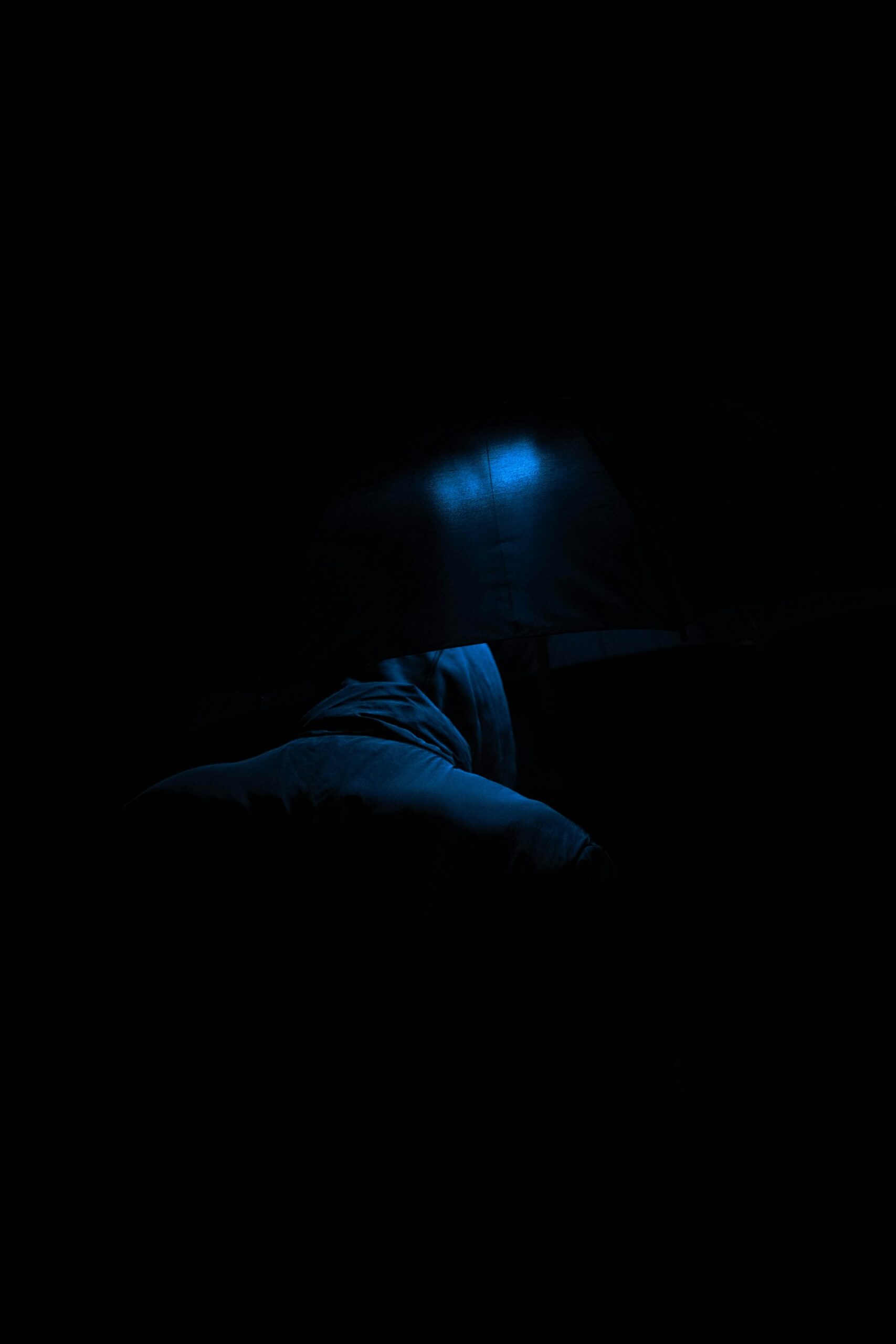Understanding the Impact of Blue Light on Sleep and Eye Health: Risks, Solutions, and Practical Guidance


Photo by Ethan Da Silva on Unsplash
Introduction
Recent advances in technology have dramatically increased our exposure to blue light , especially from digital screens and LED lighting. Concerns have emerged regarding the effects of blue light on both eye health and sleep patterns, prompting researchers and medical professionals to investigate its long-term impact. This article examines the science behind blue light exposure, its effects on sleep and vision, and provides practical steps you can take to safeguard your health.

Photo by Nick Wright on Unsplash
What Is Blue Light?
Blue light is a high-energy, short-wavelength form of visible light. While natural blue light from the sun far exceeds artificial sources, the proximity and duration of exposure to digital screens has raised new questions about its impact on our bodies. The cornea and lens of the human eye offer some protection against ultraviolet light, but are less effective at filtering blue light, allowing it to pass through to the sensitive retina [4] .
Effects of Blue Light on Eye Health
Research suggests that prolonged exposure to blue light can have detrimental effects on eye health. The most pressing concerns include:
-
Digital Eyestrain
: Extended screen time may lead to
digital eyestrain
or computer vision syndrome, with symptoms such as dry, irritated eyes, blurred vision, and headaches. These effects reportedly impact up to 50% of computer users [2] . - Retinal Damage : Animal studies have shown that blue light exposure can cause phototoxicity, damaging retinal cells and potentially leading to age-related macular degeneration (AMD) [1] . Human studies are still ongoing, but some evidence suggests a link between blue light and accelerated AMD development, especially after cataract surgery [3] .
- Dry Eye and Cataracts : There is concern that blue light contributes to dry eye and may increase the risk of cataracts over time [2] .
One notable case involved a woman using an LED face mask who developed a retinal lesion, though the exact cause was unclear due to the device emitting multiple wavelengths [4] .
Potential Risks for Children
Children are particularly vulnerable because their eyes transmit more blue light to the retina. Increased screen time among children has been linked to a rise in myopia (nearsightedness), which is associated with additional risks such as retinal detachment and glaucoma [5] .
Current Research Limitations
Despite these concerns, long-term studies on the effects of blue light exposure in humans are limited. Most evidence comes from animal research or short-term clinical observations, and some eye doctors argue that blue light from devices is less harmful than previously thought [4] . Nevertheless, medical consensus recommends caution until more definitive studies are completed.
Impact of Blue Light on Sleep
Blue light plays a significant role in regulating circadian rhythms , the body’s internal clock that controls sleep and wake cycles. Exposure to blue light in the evening, especially from screens, can suppress melatonin production, the hormone responsible for sleepiness [2] . Even two hours of nighttime screen time can significantly reduce melatonin release, leading to difficulty falling asleep and disrupted sleep quality.
Individuals who use devices late at night often experience insomnia, shorter sleep duration, and daytime fatigue. Research suggests that powering down devices at least three hours before bedtime improves sleep outcomes [2] .
How to Minimize Blue Light Exposure
While complete avoidance of blue light is unrealistic, several strategies can help reduce exposure and mitigate potential risks:
- Screen Time Management : Limit the duration of exposure to digital devices, particularly in the evening. Use the “20-20-20” rule: every 20 minutes, look at something 20 feet away for 20 seconds to reduce eyestrain [3] .
- Screen Filters : Install blue light filtering screens or covers on computers, smartphones, and tablets. These filters can reduce the amount of blue light reaching your eyes.
- Computer Glasses : Consider using computer glasses with yellow-tinted lenses designed to block blue light and increase visual contrast. These may help reduce digital eyestrain and discomfort [3] .
- Anti-Reflective Lenses : Prescription glasses with anti-reflective coatings can reduce glare and filter out some blue light from both screens and sunlight.
- Intraocular Lens Options : If you undergo cataract surgery, discuss available intraocular lens (IOL) options with your ophthalmologist. Some IOLs offer additional protection against blue light [3] .
- Device Settings : Many modern devices offer built-in blue light filtering modes (often called “Night Shift” or “Night Mode”). Enable these settings during evening hours to reduce blue light emission.
- Outdoor Activity : For children and adults, spending more time outdoors and less on screens may help reduce the risk of myopia and other vision problems [5] .
For personalized advice, consult a licensed eye care professional who can assess your needs and recommend protective solutions specific to your situation.
Practical Steps to Protect Eye Health and Sleep
Implementing these protective strategies can be straightforward. Here’s a step-by-step guide:
- Assess your current screen usage. Note how many hours per day you spend on digital devices.
- Gradually reduce evening screen time. Aim to stop using screens at least three hours before you plan to sleep.
- Install blue light filters on your devices or use built-in features to reduce blue light emission in the evening.
- Consider investing in computer glasses or anti-reflective lenses if you experience regular eyestrain.
- Take frequent breaks during screen use, especially when working or studying for long periods.
- Encourage children to spend time outdoors and limit device use, especially before bedtime.
- After cataract surgery, discuss IOL options with your ophthalmologist to maximize eye protection.
If you’re seeking further support, you can:
- Contact your local optometrist or ophthalmologist for information about blue light protection products and personalized recommendations.
- Search for “blue light protection” and “digital eyestrain relief” at established eye health organizations such as Prevent Blindness and the American Academy of Ophthalmology.
- Explore device settings and app stores for blue light filtering applications.
For those in need of medical advice or specific product recommendations, always consult a certified eye care professional. If you are unsure how to find one, you can use your insurance provider’s directory or search for “eye care professionals near me” using reputable search engines.
Potential Challenges and Solutions
Some people may find it difficult to limit screen time due to work or educational requirements. In such cases, prioritizing blue light filtering solutions and regular breaks is essential. If discomfort persists, seek medical evaluation to rule out underlying eye conditions.
For children and teens, set household guidelines restricting device use before bedtime and encourage alternative activities. Schools may provide guidance on managing screen time for remote learning; parents can request resources or support from local education authorities.
Alternative Approaches
If screen filters and specialized lenses are not feasible, simple measures such as adjusting room lighting, increasing font size, and maintaining proper screen distance can help reduce eyestrain. Regular eye exams remain a critical component of maintaining long-term vision health.
Key Takeaways
Blue light exposure from digital devices and artificial lighting can impact both eye health and sleep quality. While research continues to develop, taking practical steps to limit exposure and protect your eyes remains a wise approach. Consult professionals, explore available tools, and remain informed as new findings emerge.
References
- [1] PMC (2018). Research progress about the effect and prevention of blue light on eyes.
- [2] WebMD (2023). How Blue Light Can Affect Your Health.
- [3] Prevent Blindness (2022). Blue Light and Your Eyes.
- [4] Healthline (2023). Blue Light: What is it, and How Does It Affect Our Eyes?
- [5] YouTube (2022). Blue Light – How it Affects Your Eyes, Sleep and Health.






